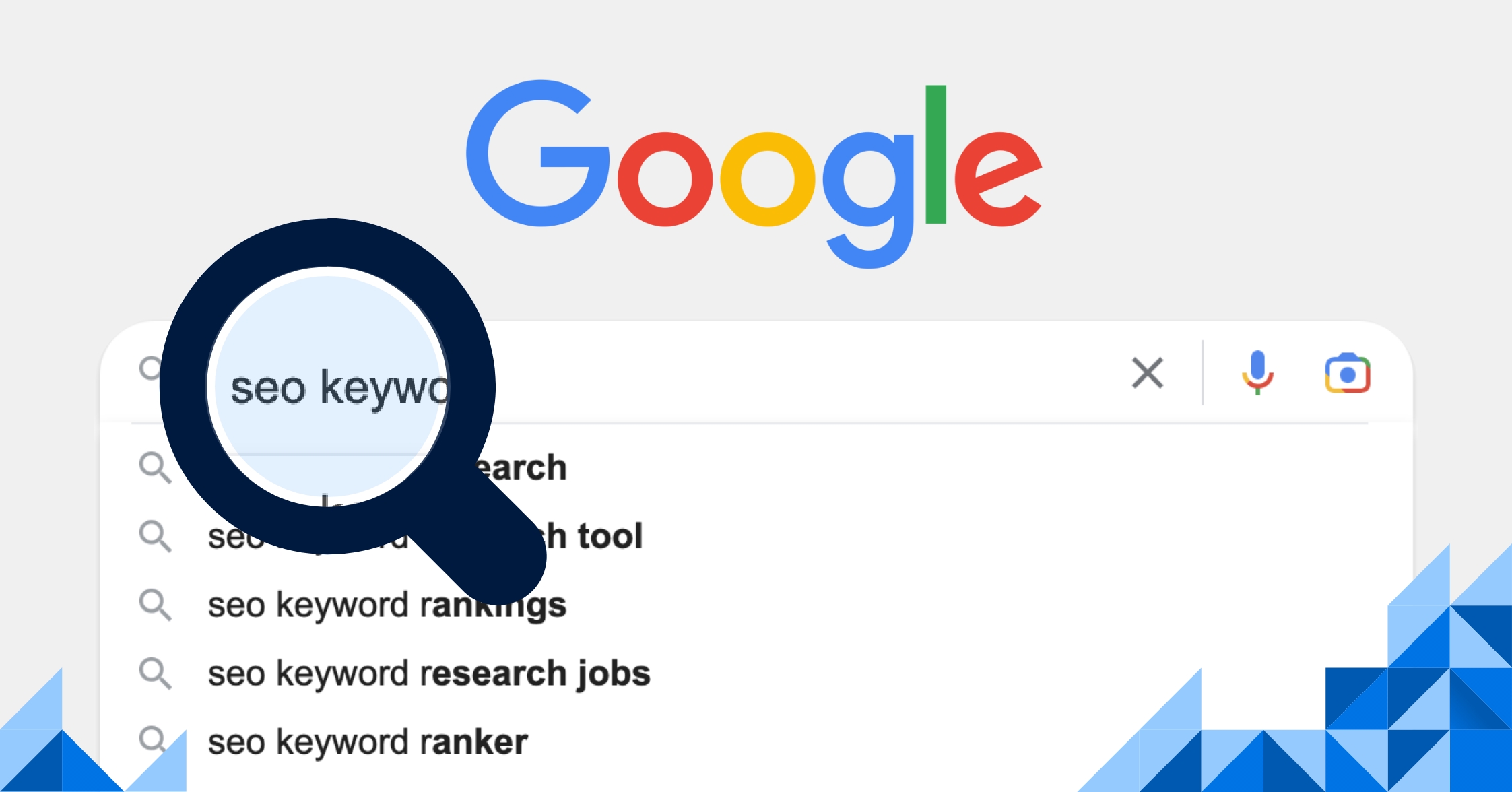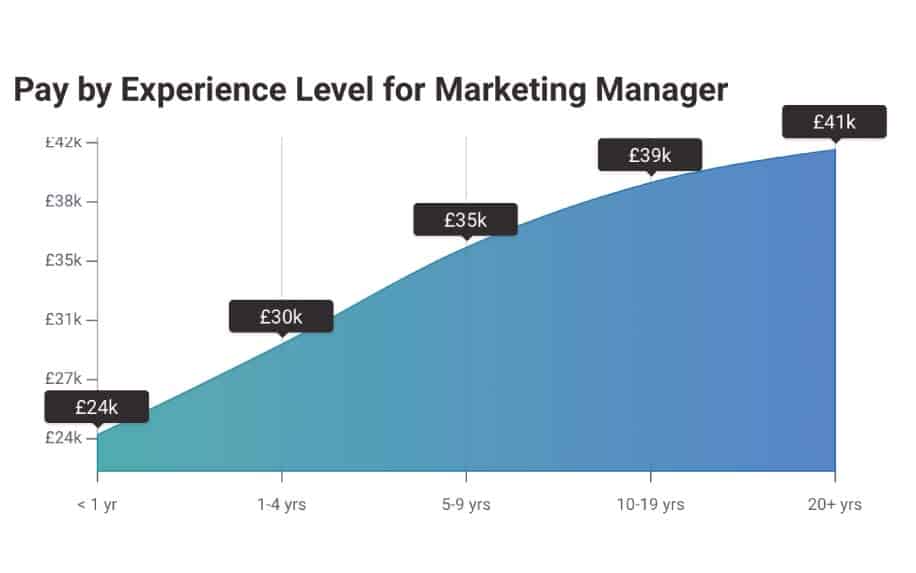
Published: Nov 30, 2024
How to Find the Perfect Content Strategy Consultant for Your Small Business
How to Find the Perfect Content Strategy Consultant for Your Small Business
I’ve been around the content block a few times, and let me tell you, finding the right strategy consultant is like dating - you gotta kiss a few frogs before you find your prince charming. But don’t worry, I’m here to be your fairy godmother of content! Let’s turn that pumpkin of a website into a traffic-driving carriage, shall we?
TLDR: What should small businesses look for in a content strategy consultant?
1️⃣ What experience should a content strategy consultant have?
Look for consultants with a proven track record working with small businesses in your industry. They should have case studies or testimonials showcasing their ability to drive traffic, engagement, and conversions through content.
2️⃣ What services should a content strategy consultant offer?
A good consultant should offer a comprehensive range of services including content audits, keyword research, content planning, creation guidance, and performance analysis. They should be able to align your content strategy with your overall business goals.
3️⃣ How much should small businesses budget for content strategy consulting?
Costs can vary widely, but expect to invest anywhere from $1,000 to $5,000 per month for ongoing consulting. One-time strategy sessions or audits might range from $500 to $2,500. Remember, it’s an investment in your business growth!
Table of Contents
- Top Skills to Look for in a Content Strategy Consultant
- How to Find Content Strategy Consultants for Your Small Business
- Questions to Ask When Hiring a Content Strategy Consultant
- How Much Should You Budget for Content Strategy Consulting?
- DIY Content Strategy vs. Hiring a Consultant: Pros and Cons
- Why Your Small Business Needs a Content Strategy Consultant
- Success Stories: Small Businesses That Nailed Their Content Strategy
- Next Steps: Implementing Your New Content Strategy
- Red Flags to Watch Out for When Choosing a Consultant
Top Skills to Look for in a Content Strategy Consultant
When you’re on the hunt for a content strategy consultant to boost your small business’s online presence, you want someone who’s got the chops to really make a difference. Here are the key skills that separate the pros from the amateurs:
SEO Expertise
A top-notch consultant should know SEO like the back of their hand. We’re talking:
- Keyword Research
 They should be able to uncover those golden nuggets that’ll drive traffic to your site.
They should be able to uncover those golden nuggets that’ll drive traffic to your site. - On-Page Optimization Making sure your content is structured in a way that search engines love.
- Link Building Getting other reputable sites to link back to yours.
Content Creation and Editing Skills
Your consultant should be able to craft content that’s not just SEO-friendly, but also engaging for your audience. Look for someone who:
- Has a portfolio of compelling blog posts, articles, or case studies
- Can adapt their writing style to match your brand voice
- Knows how to structure content for easy readability (think headers, bullet points, and short paragraphs)
Data Analysis and Reporting
Numbers don’t lie, and a good consultant should be able to:
- Use tools like Google Analytics to track content performance
- Interpret data to make informed strategy decisions
- Provide clear, actionable reports on your content’s ROI
Industry Knowledge
While they don’t need to be an expert in your specific field, they should:
- Show a willingness to learn about your industry
- Have experience working with businesses similar to yours
- Understand your target audience and their content preferences
Strategic Thinking
A consultant worth their salt should be able to:
- Develop a comprehensive content strategy tailored to your business goals
- Create content calendars that align with your marketing objectives
- Adapt strategies based on performance data and industry trends
Social Media Savvy
In today’s digital landscape, your consultant should know how to:
- Leverage different social platforms to amplify your content
- Create platform-specific content strategies (e.g., short-form video for TikTok, professional posts for LinkedIn)
- Use social listening tools to gauge audience sentiment and gather content ideas
Project Management
Look for someone who can:
- Keep projects on track and within budget
- Collaborate effectively with your team and other stakeholders
- Use project management tools like Trello or Asana to keep everyone in the loop
Adaptability and Continuous Learning
The digital marketing world changes faster than you can say “algorithm update.” Your ideal consultant should:
- Stay up-to-date with the latest content marketing trends
- Be willing to experiment with new content formats and strategies
- Attend industry conferences or webinars to keep their skills sharp
Communication Skills
Last but not least, your consultant should be able to:
- Explain complex concepts in simple terms
- Provide constructive feedback on your existing content
- Be responsive and open to your ideas and concerns
Remember, finding a consultant with all these skills might feel like searching for a unicorn. But don’t worry if they’re not a master of everything - the key is finding someone whose strengths align with your biggest content needs. And hey, if they can make you laugh while talking about meta descriptions, that’s just a bonus!
How to Find Content Strategy Consultants for Your Small Business
Finding the right content strategy consultant for your small business can feel like searching for a needle in a haystack. But don’t worry, I’ve got some tricks up my sleeve to help you snag that perfect match. Let’s dive in!
Leverage Online Platforms
The internet is your best friend when it comes to finding talent. Here are some top spots to start your search:
- Use the search bar to look for “content strategy consultant”
- Filter results by location, industry, and recommendations
- Check out their experience, endorsements, and articles they’ve published
Upwork
- Post a job describing your needs
- Browse freelancer profiles and invite promising candidates to apply
- Use the platform’s built-in tools to interview and hire
Fiverr
- Search for content strategy gigs
- Read reviews from past clients
- Start with a small project to test the waters
Tap into Your Network
Sometimes the best consultant is just a few degrees of separation away. Try these networking strategies:
Ask for referrals from business peers
- Reach out to other small business owners in your area
- inquire about their experiences with content consultants
Attend industry events and conferences
- Network with speakers and attendees
- Keep an eye out for consultants giving talks or leading workshops
Join relevant Facebook groups or subreddits
- Participate in discussions to build relationships
- Ask for recommendations when you’re ready to hire
Explore Local Resources
Don’t overlook the talent in your own backyard:
SCORE
- This nonprofit offers free business mentoring
- Many chapters have content marketing experts on hand
Local business incubators
- These often have a network of consultants they can connect you with
- You might find up-and-coming talent at a more affordable rate
Chamber of Commerce
- Check if they have a directory of local marketing professionals
- Attend chamber events to meet consultants face-to-face
Vet Your Candidates
Once you’ve got a shortlist, it’s time to separate the wheat from the chaff:
Review their portfolio
- Look for case studies relevant to your industry
- Check out their personal blog or website to gauge their content skills
Set up discovery calls
- Ask about their process and how they measure success
- See if your communication styles mesh well
Request references
- Talk to past clients about their experiences
- Ask specifically about results and ROI
Start with a trial project
- Give them a small task to assess their skills and work style
- Use this as a chance to see if you work well together
Consider Specialized Agencies
If you’re struggling to find individual consultants, these agencies might be worth a look:
-
- Offers comprehensive content strategy services
- Known for their data-driven approach
-
- Specializes in visual content strategy
- Great if you’re looking to incorporate more infographics or videos
Remember, finding the right consultant is a bit like dating. You might need to kiss a few frogs before you find your prince or princess of content. But when you do find that perfect match, it’ll be worth all the effort. Your small business’s online presence will thank you!
Questions to Ask When Hiring a Content Strategy Consultant
Finding the right content strategy consultant for your small business is crucial. You want someone who gets your vision and can help you crush your goals. Here are some key questions to ask potential consultants to make sure you’re on the same page:
Experience and Expertise
What industries have you worked with before?

- Look for experience in your niche or related fields
- Ask about specific challenges they’ve faced and overcome
Can you share some success stories from past clients?
- Request case studies or testimonials
- Pay attention to measurable results like traffic increases or conversion rates
What’s your approach to staying current with content marketing trends?
- They should mention things like industry publications, conferences, or courses
- Bonus points if they’ve contributed to thought leadership in the field
Strategy and Process
How do you develop a content strategy?
- Listen for a clear, step-by-step process
- Make sure they emphasize understanding your business goals and target audience
What tools do you use for keyword research and content planning?
How do you measure the success of a content strategy?
- Look for specific KPIs like organic traffic growth, engagement metrics, or conversions
- They should mention analytics tools and regular reporting
Collaboration and Communication
How often will we meet to discuss progress and strategy?
- Regular check-ins are important for staying aligned
- Ask about their preferred communication channels
Who will be our main point of contact?
- Ideally, you want direct access to the strategist, not just an account manager
- Understand their availability and response times
How do you handle feedback and revisions?
- Their process should be collaborative and open to your input
- Ask about their policy for making changes to the strategy if needed
Content Creation and Optimization
Do you handle content creation, or just strategy?
- Some consultants offer full-service packages, while others focus solely on strategy
- If they don’t create content, ask if they can recommend reliable writers or agencies
How do you optimize content for both search engines and users?
- Listen for a balanced approach that prioritizes user experience while also considering SEO
- They should mention things like keyword optimization, meta descriptions, and internal linking
What’s your process for updating and refreshing existing content?
- Content audits and regular updates are crucial for maintaining rankings
- Ask how they identify underperforming content and their approach to revitalizing it
Pricing and Contracts
What’s your pricing structure?
- Rates can vary widely, so get specifics on hourly, project-based, or retainer pricing
- Ask about any additional costs for tools or resources
Do you require a long-term contract?
- Some consultants prefer ongoing relationships, while others work on a project basis
- Understand any minimum commitments or cancellation policies
Can you provide a detailed proposal outlining deliverables and timelines?
- A professional consultant should be able to give you a clear roadmap of what to expect
- This helps set expectations and avoid misunderstandings down the line
Industry-Specific Questions
How would you approach content strategy for a [your industry] business?
- Their answer should show they understand the unique challenges of your field
- Look for specific ideas tailored to your business, not just generic advice
What content formats do you think work best for our target audience?
- They should have insights based on data and experience
- Ask about their experience with different formats like blogs, videos, or podcasts
Red Flags to Watch Out For
- Promises of overnight success or guaranteed rankings
- Unwillingness to share past results or client references
- Lack of clarity about their process or deliverables
- Poor communication during the initial consultation
Remember, the right consultant should feel like a partner in your business’s growth. They should be excited about your vision and able to clearly explain how they’ll help you achieve it. Don’t be afraid to trust your gut – if something feels off, keep looking. The perfect match is out there!
How Much Should You Budget for Content Strategy Consulting?
Figuring out how much to spend on content strategy consulting can feel like trying to nail jello to a wall. But don’t worry, I’ve got your back. Let’s break it down so you can budget like a boss.
Typical Pricing Models
Content strategy consultants usually charge in one of three ways:
Hourly Rates
- Expect to pay anywhere from $75 to $300 per hour
- Great for small, one-off projects or advice sessions
- Be prepared for potential scope creep
Project-Based Fees
- Can range from $1,000 to $25,000+ depending on complexity
- Ideal for defined projects like content audits or strategy development
- Make sure deliverables are clearly outlined upfront
Monthly Retainers
- Usually $1,000 to $10,000 per month for ongoing support
- Best for long-term partnerships and consistent content needs
- Often includes a set number of hours or deliverables each month
Factors That Influence Pricing
The cost of content strategy consulting can vary wildly based on a few key factors:
Experience Level
- Newbies might charge $50-$100/hour
- Seasoned pros with big-name clients under their belt? $200-$300/hour or more
Industry Specialization
- Niche experts (like fintech or healthcare) often command higher rates
- Their specialized knowledge can be worth the extra cost
Project Scope
- A quick strategy session? Might be a few hundred bucks
- Full-scale content overhaul? You’re looking at thousands
Geographic Location
- Consultants in New York City or San Francisco typically charge more
- Remote consultants might offer more competitive rates
What You Get for Your Money
Let’s break down what different budget ranges might get you:
Shoestring Budget ($500 - $2,000)
- One-time strategy session or mini-audit
- Basic content calendar
- High-level recommendations
Mid-Range ($2,000 - $5,000)
- Comprehensive content audit
- Detailed content strategy document
- Keyword research and topic ideation
- Basic competitor analysis
Premium Package ($5,000 - $10,000+)
- Everything in mid-range, plus:
- Ongoing support and strategy refinement
- Content creation guidelines
- Analytics setup and reporting
- Training for your in-house team
Tips for Budgeting Wisely
Start small
- Test the waters with a smaller project before committing to a big retainer
Prioritize your needs
- Focus on the most critical areas first, like fixing major content gaps
Look for package deals
- Some consultants offer discounts for bundled services
Consider ROI, not just cost
- A $5,000 investment that brings in $50,000 of new business? That’s a no-brainer
Don’t forget about implementation costs
- Budget for content creation, design, and tech support to bring the strategy to life
Real-World Budget Examples
To give you a better idea, here are some real-life scenarios:
Joe’s Plumbing
 Local business, spent $2,500 on a content audit and basic strategy. Saw a 30% increase in organic traffic within 6 months.
Local business, spent $2,500 on a content audit and basic strategy. Saw a 30% increase in organic traffic within 6 months.Technica Software B2B startup, invested $5,000/month in ongoing strategy and content creation. Doubled their leads in the first year.
Wholesome Pets E-commerce site, paid $15,000 for a comprehensive strategy overhaul. Increased online sales by 50% and reduced customer acquisition costs by 25%.
When to DIY vs. Hire a Pro
Sometimes, hiring a consultant isn’t in the cards. Here’s when to consider each option:
DIY Content Strategy
- You have a solid grasp of content marketing principles
- Your budget is super tight (under $1,000)
- You have the time to learn and implement strategies yourself
Hire a Consultant
- You’re feeling lost in the content wilderness
- You have some budget to work with ($2,000+)
- You need expert insights to take your content to the next level
Remember, investing in content strategy is like planting a garden. It takes time and nurturing, but with the right care (and budget), it’ll bloom into something beautiful. And hey, if all else fails, there’s always cat videos. I hear they’re pretty popular on the internet.
DIY Content Strategy vs. Hiring a Consultant: Pros and Cons
Deciding whether to tackle content strategy yourself or bring in a pro can feel like choosing between cooking dinner or ordering takeout. Both have their merits, but which one’s right for you? Let’s break it down:
DIY Content Strategy
Pros:
Cost-effective
- Save money on consultant fees
- Great for bootstrapping startups or tight budgets
Deep business knowledge
- Nobody knows your business like you do
- Easier to align content with your brand voice
Flexibility
- Make changes on the fly without consulting anyone
- Experiment with different approaches at your own pace
Skill development
- Learn valuable marketing skills firsthand
- Apply newfound knowledge to other areas of your business
Cons:
Time-consuming
- Steep learning curve if you’re new to content marketing
- Takes time away from other important business tasks
Lack of expertise
- May miss out on industry best practices
- Risk of making costly mistakes
Limited perspective
- Harder to see your business objectively
- Might miss opportunities an outsider would spot
Slower results
- Trial and error approach can delay success
- Might take longer to see significant ROI
Hiring a Content Strategy Consultant
Pros:
Expert knowledge
- Benefit from years of experience and proven strategies
- Stay up-to-date with latest industry trends
Time-saving
- Frees you up to focus on core business activities
- Faster implementation of effective strategies
Fresh perspective
- Get an outsider’s view of your brand and content
- Identify blind spots and new opportunities
Accountability
- Regular check-ins keep your content strategy on track
- Clear metrics and reporting to measure success
Cons:
Higher upfront cost
- Professional services come with a price tag
- Might be challenging for businesses with limited budgets
Potential mismatch
- Not all consultants will be a perfect fit for your brand
- May take time to find the right partner
Dependency
- Risk of over-relying on the consultant’s expertise
- Potential challenges if you decide to part ways
Less control
- Need to compromise on some ideas or approaches
- Strategies might not always align 100% with your vision
Real-World Examples
To put this into perspective, let’s look at how some small businesses approached content strategy:
DIY Success Story:Beardbrand
- Founder Eric Bandholz built a multi-million dollar men’s grooming brand through DIY content marketing
- Created a popular YouTube channel and blog, becoming a thought leader in the beard care niche
- Achieved success through consistent, high-quality content creation and community engagement
Consultant Success Story:Groove
- Help desk software startup hired consultant Alex Turnbull to overhaul their content strategy
- Implemented a data-driven approach to content creation and promotion
- Grew blog readership from 0 to 250,000 monthly readers in under two years
Making the Right Choice for Your Business
Deciding between DIY and hiring a consultant depends on several factors:
Budget
- DIY if funds are tight
- Consultant if you have at least $2,000-$5,000 to invest
Time availability
- DIY if you can dedicate 10-15 hours/week to content strategy
- Consultant if your schedule is already packed
Existing skill set
- DIY if you have some marketing background or are a quick learner
- Consultant if you’re starting from scratch or need rapid results
Business stage
- DIY might work well for very early-stage startups
- Consultants can help scale content efforts for growing businesses
Competition
- DIY if you’re in a less competitive niche
- Consultant if you’re up against big players with established content strategies
Hybrid Approach: The Best of Both Worlds?
Can’t decide? Consider a hybrid approach:
Start with a consultant
- Get expert help setting up your initial strategy
- Learn the ropes through hands-on collaboration
Gradually take over
- As you gain confidence, handle more tasks in-house
- Keep the consultant on for periodic check-ins or specific projects
Invest in training
- Use some of your budget for courses or workshops
- Build your team’s content marketing skills over time
Remember, there’s no one-size-fits-all solution. The best approach is the one that aligns with your business goals, resources, and long-term vision. And hey, if all else fails, you can always pivot. That’s the beauty of content strategy – it’s always evolving, just like your business.
Why Your Small Business Needs a Content Strategy Consultant
Let’s face it, running a small business is tough. You’re juggling a million things, and suddenly everyone’s telling you that you need to be pumping out content like you’re the next Hemingway. But here’s the thing - creating content without a solid strategy is like throwing spaghetti at the wall and hoping something sticks. That’s where a content strategy consultant comes in handy.
Boost Your Online Visibility
First things first, a good content strategy consultant will help you get noticed online. They’ll:
- Dig into keyword research to find out what your potential customers are actually searching for
- Help you create content that answers those burning questions
- Make sure your website is structured in a way that search engines love
For example, Moz reported that businesses with blogs get 67% more leads than those without. A consultant can help you tap into that potential goldmine.
Engage Your Audience (Without Boring Them to Tears)
Creating content that people actually want to read (or watch, or listen to) is an art form. A content strategy consultant will:
- Figure out who your audience really is and what makes them tick
- Help you develop a brand voice that resonates with your target market
- Come up with content ideas that’ll have your audience coming back for more
Think about Dollar Shave Club. Their hilarious videos went viral and put them on the map. That’s the power of great content.
Turn Clicks into Customers
Getting eyeballs on your content is great, but what you really want is to turn those readers into paying customers. A consultant will:
- Create content that guides potential customers through your sales funnel
- Help you develop lead magnets and calls-to-action that convert
- Set up systems to nurture leads through email marketing and other channels
HubSpot found that companies that blog get 55% more website visitors and 88% more leads per month than those that don’t. A content strategy consultant can help you see those kind of results.
Save You Time (and Sanity)
Let’s be real - you’ve got enough on your plate. A content strategy consultant can:
- Develop a content calendar so you’re not scrambling for ideas at the last minute
- Provide templates and guidelines to make content creation easier
- Handle the nitty-gritty details like SEO optimization and social media scheduling
This frees you up to focus on what you do best - running your business.
Keep You Ahead of the Game
The digital marketing world changes faster than fashion trends. A good consultant will:
- Stay on top of the latest algorithm updates and best practices
- Help you adapt your strategy as needed
- Introduce you to new content formats and platforms that could benefit your business
Remember when everyone thought TikTok was just for teenagers? Now it’s a marketing powerhouse. A consultant can help you spot those opportunities before your competitors do.
Measure What Matters
Creating content is great, but how do you know if it’s actually working? A content strategy consultant will:
- Set up analytics to track the right metrics for your business goals
- Provide regular reports on your content performance
- Help you understand what those numbers actually mean and how to improve them
According to Content Marketing Institute, only 39% of marketers say they’re successful at tracking ROI. A consultant can put you in that successful minority.
Real-World Success Stories
Don’t just take my word for it. Check out these small businesses that saw big results with content strategy:
River Pools and Spas
 This pool company went from struggling to thriving by focusing on creating helpful content. They now get over 500,000 website visitors a month and have become a national brand.
This pool company went from struggling to thriving by focusing on creating helpful content. They now get over 500,000 website visitors a month and have become a national brand.Groove This small software company grew their blog to over 250,000 monthly readers in two years, significantly boosting their customer base.
So there you have it. A content strategy consultant isn’t just another expense - they’re an investment in your business’s growth. And in today’s digital world, can you really afford not to have a solid content strategy? I didn’t think so.
Success Stories: Small Businesses That Nailed Their Content Strategy
Let’s dive into some real-world examples of small businesses that knocked it out of the park with their content strategies. These stories prove that you don’t need a big budget or a huge team to make a splash in the content world.
River Pools and Spas
This small pool company in Virginia turned their fortunes around with a killer content strategy:
- Started a blog answering common customer questions about pools
- Created in-depth guides on pool types, maintenance, and costs
- Produced videos showing pool installations and maintenance tips
Results:
- Organic traffic grew from 250 visits/month to over 500,000
- Became the most trafficked pool website in the world
- Expanded from local installer to national pool manufacturer
Key Takeaway: Answer your customers’ questions thoroughly and honestly. It builds trust and establishes you as an industry expert.
Beardbrand
This men’s grooming company started as a blog and YouTube channel before launching products:
- Created a YouTube channel with grooming tips and beard care advice
- Developed a distinctive brand voice that spoke directly to their target audience
- Used content to build a community around beard culture
Results:
- Grew to over 1.5 million YouTube subscribers
- Expanded into a multi-million dollar e-commerce business
- Featured in major publications like The New York Times and Fast Company
Key Takeaway: Build a community around your content before pushing products. It creates a loyal customer base.
Groove
This help desk software startup used content to compete with bigger players:
- Started a blog sharing their startup journey, including failures and lessons learned
- Created detailed case studies of customer success stories
- Developed in-depth guides on customer service and startup growth
Results:
- Grew blog readership to over 250,000 monthly visitors in two years
- Increased customer base by 10x
- Achieved $5 million in annual recurring revenue
Key Takeaway: Be transparent and share your journey. People connect with authentic stories.
Ahrefs
This SEO software company used content to become a go-to resource in their industry:
- Created in-depth tutorials on how to use their tools effectively
- Developed a YouTube channel with actionable SEO advice
- Published original research and data studies on SEO trends
Results:
- Grew to over 300,000 YouTube subscribers
- Became one of the top SEO blogs with over 500,000 monthly readers
- Expanded from a link-building tool to a comprehensive SEO suite
Key Takeaway: Educate your audience on how to use your product and provide value beyond just your offerings.
Buffer
This social media management tool used content to build brand awareness:
- Started a science-based blog on social media psychology and best practices
- Shared detailed breakdowns of their internal processes, including salaries and revenue
- Created a podcast discussing social media trends and strategies
Results:
- Grew blog readership to over 1.5 million monthly visitors
- Attracted over 70,000 paying customers
- Built a reputation as a transparent and ethical company
Key Takeaway: Don’t be afraid to share your expertise, even if it seems unrelated to your product. It builds authority and trust.
Common Threads of Success
Looking at these success stories, we can spot some recurring themes:
Consistency: All these companies produced content regularly, often for months or years before seeing big results.
Quality over Quantity: They focused on creating in-depth, valuable content rather than churning out short, superficial pieces.
Audience Focus: They created content that directly addressed their target audience’s needs and questions.
Multi-Channel Approach: Most used a combination of blog posts, videos, and social media to reach their audience.
Authenticity: They weren’t afraid to show their personality or share their struggles, which helped build genuine connections with their audience.
Remember, these businesses didn’t become overnight successes. They put in consistent effort over time, always focusing on providing value to their audience. So don’t get discouraged if you don’t see immediate results. Keep at it, learn from these examples, and you might just become the next small business content success story!
Next Steps: Implementing Your New Content Strategy
You’ve got your shiny new content strategy in hand - now what? Let’s roll up our sleeves and turn that plan into action. Here’s how to get the ball rolling:
Set Clear, Measurable Goals
First things first, you need to know what success looks like:
- SMART goals
- Specific: “Increase organic traffic by 25%”
- Measurable: Use tools like Google Analytics to track progress
- Achievable: Be ambitious but realistic
- Relevant: Align with your overall business objectives
- Time-bound: “…within the next 6 months”
Create Your Content Calendar
A content calendar is your roadmap to consistent publishing:
Choose your tool
- Trello for visual planners
- Google Sheets for spreadsheet lovers
- CoSchedule for all-in-one marketing calendars
Plan content types
- Blog posts
- Social media updates
- Videos
- Podcasts
- Infographics
Set publication frequency
- Be realistic about what you can consistently produce
- Quality trumps quantity every time
Develop Your Content Creation Process
Streamline your workflow to keep the content machine humming:
Ideation
- Use tools like AnswerThePublic for topic ideas
- Set up Google Alerts for industry news
Research and outlining
- Dive deep into your chosen topics
- Create detailed outlines to guide your writing
Writing and editing
- Consider using the Pomodoro Technique for focused writing sessions
- Use tools like Grammarly for initial edits
Review and approval
- Set up a clear review process with stakeholders
- Use collaborative tools like Google Docs for easy feedback
Publishing and promotion
- Optimize for SEO before hitting publish
- Create a checklist for consistent promotion across channels
Optimize Your Website for Content
Make sure your site is ready to showcase your awesome content:
Audit your site structure
- Is your navigation user-friendly?
- Can visitors easily find your content?
Improve page load times
- Use Google’s PageSpeed Insights to identify issues
- Optimize images using tools like TinyPNG
Implement an SEO plugin
Set Up Your Analytics
You can’t improve what you don’t measure:
Install Google Analytics
- Set up goals to track conversions
- Create custom dashboards for easy monitoring
Use heat mapping tools
Track social media metrics
- Use native analytics on platforms like Facebook and Twitter
- Consider tools like Sprout Social for more in-depth analysis
Start Creating and Publishing
Time to put your plan into action:
Focus on quality over quantity
- It’s better to publish one great piece than five mediocre ones
Be consistent
- Stick to your publishing schedule
- Your audience will come to expect and look forward to your content
Engage with your audience
- Respond to comments on your blog and social media
- Use feedback to inform future content ideas
Promote Your Content
Don’t just hit publish and hope for the best:
Email marketing
- Send new content to your email list
- Use tools like Mailchimp for easy email campaigns
Social media
- Share on all relevant platforms
- Consider using Buffer for scheduled posting
Outreach
- Reach out to influencers in your industry
- Look for guest posting opportunities on relevant blogs
Measure and Iterate
The work doesn’t stop once you’ve published:
Regular reporting
- Set up monthly or quarterly review sessions
- Look at key metrics like traffic, engagement, and conversions
A/B testing
- Test different headlines, content formats, or promotion strategies
- Use tools like Optimizely for easy A/B testing
Content audits
- Conduct a thorough content audit every 6-12 months
- Identify top-performing content and opportunities for improvement
Stay Flexible
Remember, your content strategy isn’t set in stone:
Keep an eye on industry trends
- Follow industry blogs and attend webinars to stay current
Be ready to pivot
- If something’s not working, don’t be afraid to change course
Celebrate wins (big and small)
- Did a blog post go viral? Pop some champagne!
- Hit a traffic milestone? Treat the team to lunch!
Implementing a content strategy is a marathon, not a sprint. It takes time, effort, and a whole lot of patience. But stick with it, and you’ll see your small business’s online presence grow in ways you never imagined. And hey, if you ever feel stuck, remember: even the content marketing pros were beginners once. Keep at it, and before you know it, you’ll be the one doling out advice to newbies!
Red Flags to Watch Out for When Choosing a Consultant
When you’re on the hunt for a content strategy consultant, it’s not just about finding someone with skills - it’s about finding the right fit for your small business. Here are some red flags that should have you running for the hills:
Overpromising and Underdelivering
Watch out for consultants who promise you the moon and stars:
- “I’ll get you to #1 on Google in a week!”
- SEO takes time. Anyone promising overnight success is probably full of hot air.
- “We’ll double your traffic in a month!”
- While rapid growth is possible, realistic consultants set achievable expectations.
Real talk:Neil Patel, a respected digital marketing expert, says it often takes 6-12 months to see significant SEO results. If someone’s promising faster results, be skeptical.
Lack of Transparency
A good consultant should be an open book:
- No clear pricing structure
- If they’re dodgy about costs, what else are they hiding?
- Vague about their process
- They should be able to walk you through their strategy step-by-step.
Poor Communication
Communication is key in any relationship, including with your consultant:
- Slow response times
- If they’re not getting back to you during the sales process, imagine how it’ll be when you’re a client.
- Inability to explain concepts in simple terms
- A great consultant can break down complex ideas without the jargon.
Lack of Relevant Experience
While everyone starts somewhere, you want someone with a track record:
- No case studies or testimonials
- Ask for examples of their work with businesses similar to yours.
- Unfamiliarity with your industry
- They should at least show a willingness to learn about your niche.
One-Size-Fits-All Approach
Your business is unique, and your strategy should be too:
- Cookie-cutter strategies
- If their proposal looks like it could apply to any business, it’s probably not tailored to your needs.
- Pushing services you don’t need
- A good consultant focuses on what’s best for your business, not their bottom line.
Outdated Techniques
The digital world moves fast. Your consultant should keep up:
- Focus on keyword stuffing or other black hat SEO techniques
- These can get you penalized by Google.
- Ignoring mobile optimization
- With mobile-first indexing, this is a crucial oversight.
Lack of Data-Driven Decisions
In content strategy, gut feelings aren’t enough:
- No mention of analytics or tracking
- How will they measure success if they’re not tracking anything?
- Inability to explain ROI
- They should be able to tie their efforts to your business goals.
Poor Online Presence
Practice what you preach, right?
- Their own website is a mess
- If they can’t optimize their own site, how will they help yours?
- No social media presence
- In today’s digital age, this is a red flag for any marketing professional.
Ignoring Your Goals
Your consultant should be focused on your objectives:
- Pushing vanity metrics
- Lots of traffic is great, but if it’s not leading to conversions, what’s the point?
- Not asking about your business goals
- They should be aligning their strategy with your overall business objectives.
Lack of Ongoing Education
The digital marketing world is always changing:
- No mention of staying current with industry trends
- They should be able to talk about recent updates like Google’s helpful content update.
- Unfamiliarity with new tools or platforms
- While they don’t need to be experts in everything, they should be aware of new developments.
Real-World Red Flag Example
Let me tell you about my friend Sarah. She runs a small e-commerce store selling handmade jewelry. She hired a consultant who promised to “10x her traffic in 30 days.” Spoiler alert: it didn’t happen.
The consultant used outdated link-building techniques that got Sarah’s site penalized by Google. It took months to recover, and she lost a ton of sales in the process.
The lesson? If it sounds too good to be true, it probably is. A good consultant sets realistic expectations and uses white hat techniques that stand the test of time.
Remember, choosing a content strategy consultant is a bit like dating. You might need to kiss a few frogs before you find your prince or princess. But by keeping an eye out for these red flags, you can avoid a lot of headaches (and wasted money) along the way.
Trust your gut. If something feels off, it probably is. Don’t be afraid to ask tough questions and request references. A great consultant will welcome the opportunity to prove their worth.
And hey, if you find yourself nodding along to more than a couple of these red flags? It might be time to swipe left on that consultant and keep looking. Your perfect match is out there, and they won’t set off any of these alarm bells!


